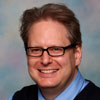Lifetime Achievement Award Honors Neil Ivory
sue@susanweaver.net
PULLMAN, Wash. – Faculty member Cornelius F. Ivory has been recognized with a Lifetime Achievement Award for pioneering work and leadership in electrokinetics (the motion of small particles in fluids induced by an electrical field).
He is the Paul Hohenschuh Distinguished Professor in the Gene and Linda Voiland School of Chemical Engineering and Bioengineering at Washington State University.
He was honored by the Advancing Electrokinetic Science (AES) Electrophoresis Society “for major advances in alternative electrophoretic focusing methods, including those employing gradients of velocity, electric field, conductivity and temperature, all of which have potential for protein purifications.”
“Professor Ivory has produced several pioneering works that shape the field of applied electrokinetics and separations. He is generous leader and truly interested in supporting the professional community,” said Mark Hayes, president of AES.
The society is a nonprofit organization dedicated to advancing and promoting electric field-mediated separations, manipulations and related phenomena. The organization was formed to promote and generate scientific knowledge and engineering techniques.



